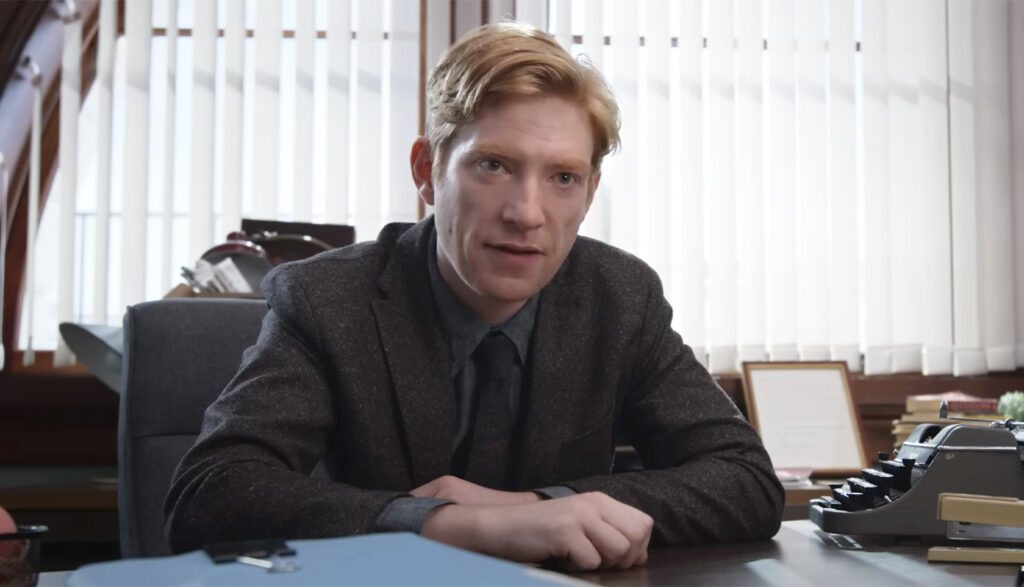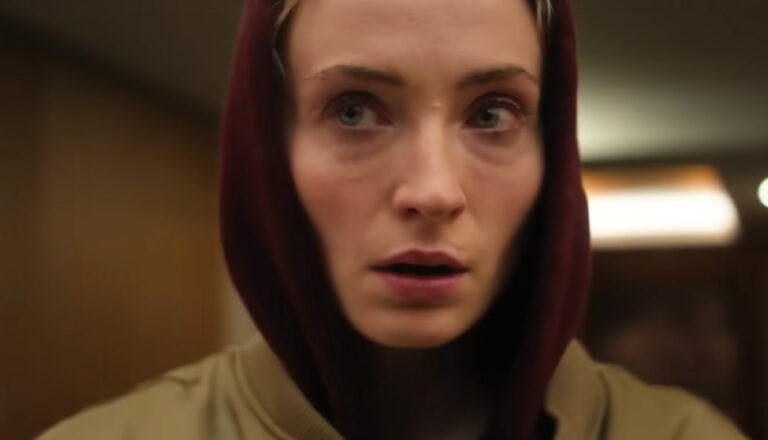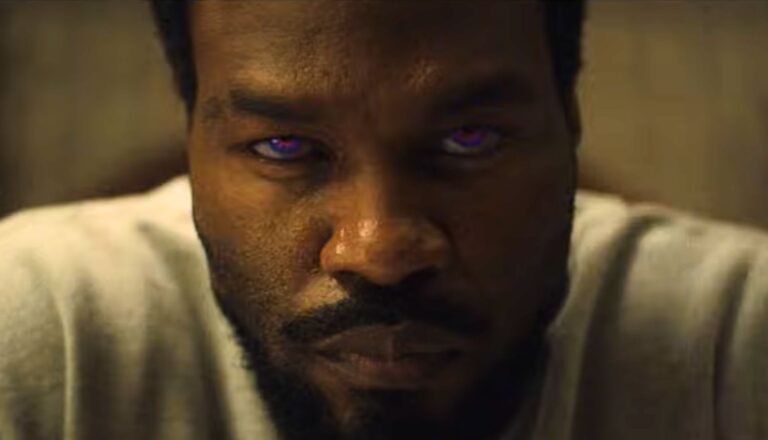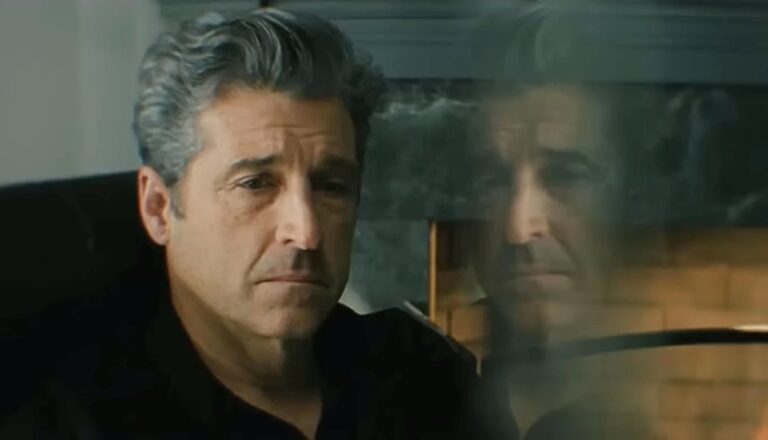
Shrinking
Apple TV+ seems to have a knack for creating deeply heartfelt, wildly problematic comedies. Shrinking is one of them.

In an increasingly paperless society, a paper company like Dunder Mifflin was bound to struggle.
Granted, the paper company never appeared to be a well-oiled (or well-pulped? Well-folded?) paper machine. As you may know, Dunder Mifflin became the focus of a famed eight-year documentary effort, chronicling the in-and-out-of-office travails of branch manager Michael Scott and his cadre of long-suffering employees. (That mockumentary was widely known, of course, as The Office.)
But in 2019, Dunder Mifflin was acquired by the larger conglomerate Enervate, based in Toledo, Ohio. Out went Dunder Mifflin’s (ahem) staple product of office copy paper. In came more universally needed types of pulp-based products: toilet paper and seat protectors, mainly.
Oh, and newsprint for the local newspaper, the Toledo Truth-Teller.
That’s right: an actual printed news organ, printed on actual paper. Will wonders never cease?
Granted, the Truth-Teller has also seen brighter days. Once boasting nearly a thousand-person staff, Toledo’s homegrown paper has been whittled down to just nine. And most of them have about as much journalism experience as your average gerbil.
Ned Sampson, the Truth-Teller’s new editor-in-chief, aims to change that. He’s not ready to toss in the towel on the concept of local news. He’s determined to bring a semblance of respect back to this once-respectable institution.
“It compares badly to any other printed material,” Ned admits of the Truth-Teller. “But we are going to make it better.”
Not if Esmeralda Grand, the paper’s managing editor, has a say. She misses the day—that is, the day before Ned arrived—when the Truth-Teller would publish simple, compelling click-bait fare. (“You Won’t Believe How Much Ben Affleck Tipped His Limo Driver!” one web-based headline blares.) But she doesn’t miss that nearly as much as her power and prestige and much-larger office. Esmeralda is angling to oust Ned, chuck aside those boring city council meetings and return to the heady days of Ben Affleck’s limo drivers.
But the rest of Ned’s staff seem willing to give it a go. In fact, most have other jobs as the paper’s salespeople and accountants: They’ve just been donating a few hours of their time to see what’s up with the local parks and rec department or to check in with the courts.
Mare Pritti, who once worked for an actual paper (the military’s Stars and Stripes), is swiftly shaping into Ned’s most trusted workmate. And he seems to have the tentative support of Enervate’s head honcho (Marv), if not its strategy manager (Ken).
Yes, it seems that Ned hopes his version of the Toledo Truth-Teller will aspire to The New York Times’ famous motto: “All the news that’s fit to print.”
But are the paper’s offices fit to be filmed?
The Paper positions itself as a sequel of sorts to NBC’s famed mockumentary, The Office—even though only one character from the original show returns: Oscar Martinez (played by Oscar Nuñez), one of Dunder Mifflin’s old accountants, is horrified to see the return of the cameras. And perhaps viewers should share his unease.
For the most part, The Paper stays on par with its predecessor: While it’s early yet, the show clearly hopes to introduce insanely quirky, sometimes unlikable characters that we might nevertheless care for and root for over time. (Who could’ve imagined that Steve Carell’s Michael Scott—objectively a terrible manager—would’ve been embraced by so many?)
The Paper comes with a bittersweet tang, too, especially for an old newspaper reporter like me. Released the same week that The Atlanta Journal-Constitution announced it was discontinuing its own printed edition, the pilot episode’s visit to the Truth-Teller’s physical press felt more poignant than perhaps its makers had intended.
As for content issues, The Paper mostly stays in the bounds of its predecessor.
Mostly. Note that word.
While The Office had plenty of ribald jokes, intentionally wince-worthy gags and a smattering of foul language, the show still aired on broadcast television. And that meant that its makers had to keep the show reasonably clean. After all, they knew that families were watching—and the FCC was, too.
But The Paper is on Peacock, a streaming service without any sort of content fetters to speak of. And every now and then, it pushes the envelope. The opening episode contains an unfiltered f-word, for instance—not to mention a stream of censored profanities from Oscar (in his efforts to make the footage unusable).
Oscar is gay, by the way, so we’ll likely see references to his orientation as the show moves forward. Other sorts of romances are sure to bloom in the Truth-Teller’s newsroom as the show goes on. And while we don’t anticipate this show will veer too far off course, its streaming locale makes it a possibility.
For fans of The Office, The Paper offers a return to fake docu-cameras, cringy jokes and surprisingly resonant relationships. But the content problems are not ones that you can simply paper over.
(Editor’s Note: Plugged In is rarely able to watch every episode of a given series for review. As such, there’s always a chance that you might see a problem that we didn’t. If you notice content that you feel should be included in our review, send us an email at letters@pluggedin.com, or contact us via Facebook or Instagram, and be sure to let us know the episode number, title and season so that we can check it out.)
The documentary crew behind The Office finds a new subject for its cameras in Toledo, Ohio, in the guise of the city’s local paper. They arrive just about the same time as the paper’s new editor-in-chief does. That new editor, Ned Sampson, is an idealist determined to turn the paper around. But that idealism runs headlong into a couple of walls: The paper’s lack of resources and its own managing editor, Esmeralda.
Ned’s barely walked through the door before Esmeralda sends out an email, telling the paper’s employees that Ned was not “me-too’ed.” Ned tells Esmeralda that the email was not helpful, strictly speaking. “I’ve also never embezzled or slapped a waitress,” he says. Esmeralda tells Ned that she was just trying to be helpful to nip any allegations (of which there were none) in the bud. Otherwise, the staff would be thinking, “I wonder what was his evil crime? Did he do it to a person? An animal? I hope he doesn’t do it to me!” Esmeralda offers to retract her email—which, of course, would make the staff think that Ned had sexually harassed someone—so Ned says to just forget about it and move on.
Esmeralda wears shape-hugging outfits and loves the attention of the camera crew. “You’re going to get tired, chasing my busy little body around with that camera,” she says, stroking her hips. We see a pinball machine with a risqué depiction of a woman. The newspaper’s corporate owner also sells toilet paper, the mascot for which is a buxom cartoon model. (The conglomerate’s strategy exec practically drools as he introduces the “model” to the documentary crew.) The newspaper offices feature an all-gender restroom, creating awkward discomfort among its users.
We hear a couple of references to religion. A newspaper staffer says of another that she suspects he was part of a special-needs hiring program: “Poor religious people with no skills.” Ned tells the camera crew that he loves challenges: “That’s why I’m so good at Lent.” An old black-and-white documentary, featuring the paper when it was in its prime in 1971, shows the newspaper’s publisher from the time standing by the newspaper presses. “I don’t mean to be blasphemous, but I worship at the altar of this machine,” he says.
Ned talks about cultivating sources “over whiskey in a smoky bar.” Esmeralda, who’s a native Italian speaker, tells Ned to be “not so self-defecating” (meaning, presumably, not so self-deprecating.) A character tells someone that it’s a death sentence to brake for deer. We hear an uncensored f-word, while several others (along with a slew of other profanities) are bleeped. Also uncensored: single uses of “d—n,” “h—” and a misuse of God’s name.
Ned is preparing to publish his first edition of the Toledo Truth-Teller. He knows that local news may lag, considering that few on the staff have even read a newspaper, much less written for one. But when he learns that Esmeralda cancelled the Truth-Teller’s wire services—the Associated Press, Reuters and the like—Ned realizes that his fledgling news crew will have to be tossed in the mix immediately.
Ned tries to scrounge up some news on his own. For instance, he calls police headquarters, hoping that Toledo may be in the midst of a crime spree. When he learns that crime is pretty much down across the board, Ned asks, “Would you say the lower crime rate is the result of increased police brutality?” (The police spokesman hangs up on him.) Ned also calls the morgue and asks if it has any suspicious bodies lying around. When morgue officials say no, Ned encourages them to look in out-of-the-way corners for some. Later, the police call Ned and say that Toledo may have a serial killer on their hands: Or, at least, so it would appear, given the strange calls the morgue has received that day. (Ned celebrates the possibility of an at-loose serial killer before he realizes that the police might be suspecting him.)
Barry, the staff’s only real reporter, falls and hurts his leg, which sends him to the hospital. A fledgling reporter, Travis, goes to the fish and wildlife department, ostensibly to ask about the change in the limit of fish one can catch in Lake Erie. In reality, he’s there to talk to his ex-girlfriend (against, apparently, a restraining order) and confront her new beau. That leads to a physical confrontation, and that leads to Travis getting arrested. Another reporter quizzes a couple of local teens about what’s new in “skating, tagging, drugging.”
We hear that someone’s father had a long affair with an exotic dancer. Esmeralda accuses Ned of being “anal.” Ned, Esmeralda and a couple of people go out for lunch—which includes alcoholic beverages. (Ned is invited to stay “for cigars.”) We hear a crude reference to testicles. The s-word is used once, and God’s name is misused three times.

Paul Asay has been part of the Plugged In staff since 2007, watching and reviewing roughly 15 quintillion movies and television shows. He’s written for a number of other publications, too, including Time, The Washington Post and Christianity Today. The author of several books, Paul loves to find spirituality in unexpected places, including popular entertainment, and he loves all things superhero. His vices include James Bond films, Mountain Dew and terrible B-grade movies. He’s married, has two children and a neurotic dog, runs marathons on occasion and hopes to someday own his own tuxedo. Feel free to follow him on Twitter @AsayPaul.

Apple TV+ seems to have a knack for creating deeply heartfelt, wildly problematic comedies. Shrinking is one of them.

‘Steal,’ an intense, nail-biting thriller, will certainly keep you engaged. But that means facing some bloody, frightening situations along the way.

For a superhero show, ‘Wonder Man’ is surprisingly light on violence, but a bit heavy on swearing, sexual allusions and meta-Hollywood references.

The content issues in ‘Memory of a Killer’ aren’t forgettable, but they’re tamer than most other shows in the “double life” genre.